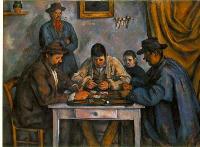A Paradigm
A concept like "culture" is sometimes better approached by the paradigm of other words and problematics to which it is attached than by the definitions that may be given of it. Thus, when talking about "culture" one often distinguishes between
- High culture
- Mass or popular culture
- Counterculture
The concept of a counter culture itself ties to another set of distinctions between
- Dominant (or hegemonic) cultures
- Resistant, minority or sub-cultures
The word "culture" itself is often paired, distinguished or opposed to the work "nature." The opposition itself can be said to be part of (high) cultural system within which culture and nature are opposed.
By the same token, when talking about culture one talks about what is
- Universal to all human beings ("culture is what distinguishes human beings from all
other life forms")
AND
- What distinguishes human beings from each other
Thus, to talk about culture is to talk both about the universal and the particular, or, more precisely about the universal quality that allows for the particular, or the atemporal, species-specific, processes that allow for history.
All this might be illustrated by exploring possibilities in an interpretation of a famous painting by CÚzanne:
Les joueurs de carte 1890-92
(110 Kb)

As a (cultural) object, nothing may be more high culture than a painting by CÚzanne.
Nothing may be more popular culture than three peasants playing cards in a village bar.
The people themselves are placed by their clothes, stances, physiognomy in a particular time and place: Southern France at the end of the 19th century. They can stand as exemplars of a particular cultural form (the culture of Provence) while the painting itself is an exemplar of a related culture (the culture of Impressionistic painting within the great tradition of European visual art).
Taking the painting as ethnographic representation, can we then say that the culture of Provence is the culture "of" the people painted ("their" culture?). Similarly, is the culture of Impressionism the culture "of" CÚzanne?
Because they are all together, apparently peacefully playing (or observing) the same game, can we say that they are all more or less the same, in agreement or consensus? Could we search for a common personality structure or identity that each person would have?
Because you (any human being who reads this sentence) is looking at a reproduction of the painting (and reading this sentence), and thus somewhat in the same position as the man standing up in the painting, can I (you?) say that 'we' (you and I and CÚzanne and ...) are more or less the same, in agreement or consensus? Could we search for the common personality structure or identity that we would share as we look at a painting by CÚzanne (or attend a lecture on culture)?
(By the way, what is most important about CÚzanne: that he is an impressionist or that he is a rebel against older representational forms?).
Three of the people are playing cards, and thus performing what is one of the dominant metaphors for "culture:" that is a system of rules learned and agreed upon. Culture, in this perspective, is a matter of cognition (rather than values or personality structures) and the little girl in the background may be in the process of learning the rules of the game, and of a bar sub-culture which no adult female can quite enter.
And then there is the man standing in the back: could he stand for the interpreter, the third person in all interactions which makes it what it is by telling all involved what it is that they are doing? Does he stand for the authority figures who establish (hegemonically?) that "this is a card game," "these are French Provencal peasants," "this picture is a masterpiece created by CÚzanne," "this is an illustration useful in a summary presentation of what one talks about when one talks about culture."
This page is used primarily in my course Culture and Communication